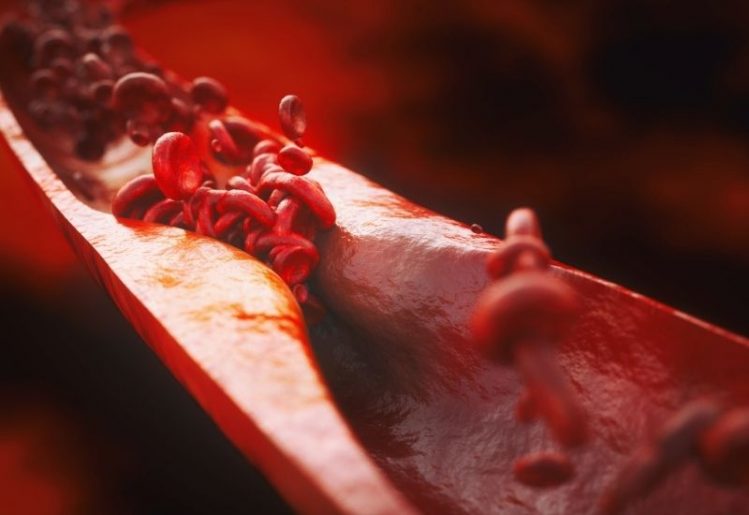You may be surprised to learn that in addition to providing you with an energy boost, caffeine reduces heart disease risk. New research is demonstrating how this substance can promote a healthier cardiovascular system. Once you understand more about cardiovascular disease and the risks and symptoms of this chronic health condition, you will want to discover ways that you can support a healthy heart.
Understanding More About Cardiovascular Disease
 Cardiovascular disease affects over 18 million American adults. Also known as heart disease, this chronic condition is an umbrella term to describe a number of different health issues related to the cardiovascular system. The most common type of cardiovascular disease in this country is coronary artery disease (CAD). This disease is triggered when fatty deposits build up in the body’s blood vessels.
Cardiovascular disease affects over 18 million American adults. Also known as heart disease, this chronic condition is an umbrella term to describe a number of different health issues related to the cardiovascular system. The most common type of cardiovascular disease in this country is coronary artery disease (CAD). This disease is triggered when fatty deposits build up in the body’s blood vessels.
Too much plaque buildup in the arteries can lead to devastating health issues such as a heart attack or stroke. It can also cause the death of tissue in the body, known as gangrene. These issues can have a devastating effect on an individual’s life expectancy.
Risk Factors and Symptoms of Cardiovascular Disease
The most acute symptoms of cardiovascular disease include heart attack, heart failure or arrhythmia. The specific symptoms of a heart attack are pain in the chest, upper back or neck area, heartburn, indigestion, extreme fatigue, dizziness and shortness of breath. Symptoms of arrhythmia include chest palpitations that may feel like fluttering. If you are undergoing heart failure, you may notice that you are experiencing shortness of breath, fatigue, or swelling in the legs, ankles and feet. However, it should also be noted that heart disease is also known as a silent killer because some people do not realize they have an issue until they suffer from an acute event.
While the symptoms of cardiovascular disease can be difficult to identify, it is easier to pinpoint the major risk factors. These primary issues that put you at a higher risk include high blood pressure, high blood cholesterol and being a smoker. Unfortunately, nearly half of all Americans have at least one of these three primary risk factors, making it not surprising that cardiovascular issues are so prevalent in this country. Other risk factors that raise the threat of heart disease include being obese or overweight, physical inactivity, excessive use of alcohol, diabetes and eating poorly.
How Caffeine Reduces Heart Disease Risk
A recent study out of McMaster University in Canada recently discovered that caffeine has the ability to lower blood proprotein convertase subtilisin and kexin type 9 (PCSK9) levels. As a result, bad cholesterol levels may also be lowered in the process. The researchers published the results of their study in the journal Nature Communications, detailing that individuals consuming caffeine in amounts greater than 600 milligrams each day may experience a lowered risk of developing cardiovascular disease.
High levels of this LDL cholesterol has been shown to increase the risk of coronary heart disease. By lowering these levels, people will naturally also lower their risk of complications to their cardiovascular system. Because of the information gleaned from the study, researchers are now looking at developing new caffeine products that could be used as possible treatments for those suffering with cardiovascular disease.
How to Foster a Healthy Cardiovascular System
While cardiovascular disease is scary to think about, the good news is that there are steps that you can take to support your heart health. Here are a few of the best ways that you can foster a healthy cardiovascular system.
Understand Your Healthy History and Risks
One of the best things that you can do for your health is to know your personal history and risk profile for developing cardiovascular disease. Your doctor should be informed of your family history of the disease so that you can make the appropriate lifestyle decisions. Along this same line, it is important to talk to your doctor about any medications that you are taking so that you can ensure that you are using it correctly.
Eat a Nutritious Diet
What you eat can have a profound effect on your risk of developing cardiovascular disease. It is important to choose a diet that is focused on whole foods. You should also be intentional about avoiding sodium, added sugar and saturated fats.
Move Your Body
Just as important as eating a healthy diet is being dedicated to moving your body. Most people should aim to get at least 150 minutes of moderate aerobic activity every week. In addition, engaging in two days of strength training exercises is another good habit to start.
Stop Smoking
 Smokers are already at a significant disadvantage when it comes to heart health. One of the very best things that you can do for your overall health is to kick this deadly habit.
Smokers are already at a significant disadvantage when it comes to heart health. One of the very best things that you can do for your overall health is to kick this deadly habit.
Look Into Supplements
Special nutrients can help to promote a normal cardiovascular system. These include substances such as nattokinase, niacinamide, L-arginine and lycopene.


